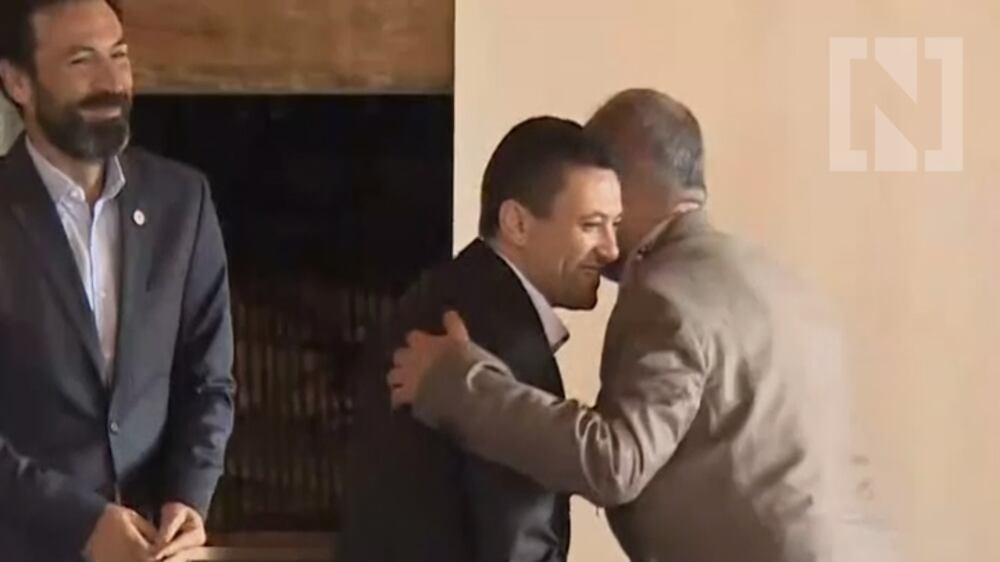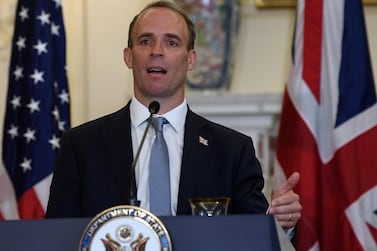Yemen's warring sides should move swiftly to implement a swap of more than 1,000 prisoners after an agreement at talks in Switzerland, the UN envoy to the country said on Sunday.
The internationally recognised government and the Iran-backed Houthi rebels agreed at UN talks in 2018 to exchange about 15,000 prisoners as a confidence-building measure for wider peace talks to end Yemen’s five-year civil war.
The UN and Red Cross have tried to mediate the implementation of the deal but final hurdles have so far delayed major releases.
"I am extremely pleased to be here to honour that you have reached a very important milestone," UN envoy Martin Griffiths said.
Mr Griffiths praised the progress in negotiating the release of the first batch of 1,081 prisoners.
Since the 2018 agreement, the two sides have made sporadic prisoner swaps.
But the release of hundreds of loyalists and insurgents would mark the first large-scale handover since the war began in 2014.
The rebels have approved the release of 400 government prisoners, including 15 Saudi nationals and four Sudanese nationals.
The Saudi-backed government will free 681 Houthi fighters, a member of the government delegation said.
"I urge the parties to move forward immediately with the release and to spare no effort in building upon this momentum to swiftly agree to releasing more detainees," Mr Griffiths said.
The International Committee of the Red Cross will oversee the return of detainees to their families.
The deal presents "a life-changing step" for hundreds of detainees and their families, said Fabrizio Carboni, the ICRC regional director for Near and Middle East.
"We are working with parties to build on this and agree on legs, security and logistics guarantees to move this release operation from signatures to reality," Mr Carboni said.
He urged the parties to agree "on a concrete implementation plan, so this operation can move from signatures on paper to reality on the ground".
The talks started in an undisclosed location in Switzerland on September 18 aimed at agreeing the release of 1,420 prisoners.
Among them is the brother of Yemeni President Abdrabu Mansur Hadi.
But the release of Gen Nasser Hadi by the rebels "has been postponed", a government delegation member said.
Mr Griffiths helped to broker a deal in Sweden nearly two years ago, which included the prisoner swap and a halt on fighting around the Red Sea city of Hodeidah.
It has been slowly and only partially implemented.
The rebels released 290 prisoners in a unilateral move last year and Saudi Arabia released 128, while a locally mediated swap in Taez governorate saw dozens freed.
In January 2020, the ICRC facilitated the release of six Saudis held by the Houthis.
Since the 2018 meeting in Sweden – the first face to face sit down between the Houthis and the government in years – Mr Griffiths has been shifting between sides to have the deal implemented and start wider political negotiations to end the war.
The Yemen conflict has killed tens of thousands of people, most of them civilians, and sparked what the UN calls the world's worst humanitarian crisis.
It erupted in late 2014 when the Iran-backed Houthis seized the capital, Sanaa, and much of the country’s north.
A Saudi-led military coalition intervened the following year in an effort to restore Mr Hadi's government to power.






